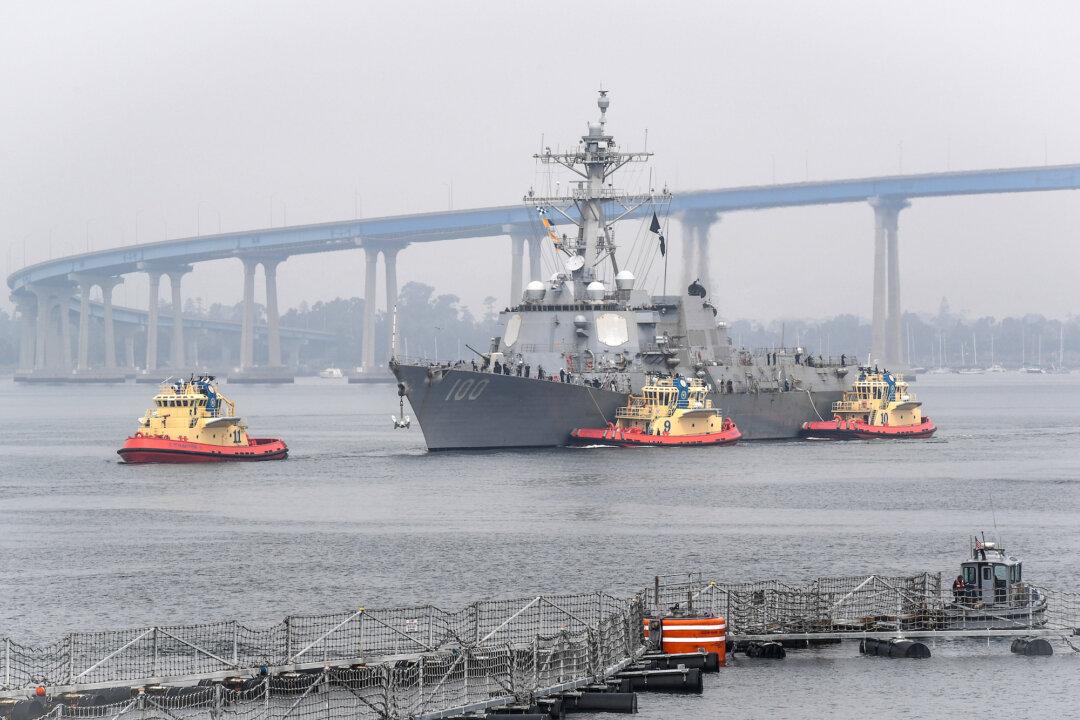The USS Kidd destroyer has pulled into a naval base in San Diego, five days after becoming the second Navy ship to be hit with a COVID-19 outbreak while on deployment at sea.
“All sailors will be isolated off-ship with twice-daily medical screenings,” said an April 28 Navy statement. “Crew members who have tested negative will enter quarantine for a period of observation, to include daily visits from military health professionals to monitor for symptoms.”





